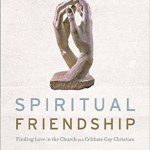So, take a minute. Make a list.
If you’re a theology nerd, and you’re aware, for example, of St. Thomas Aquinas’ extensive lists of possible mortal sins then you might still be scribbling as the minute waltz fades away. But if you’re just a normal, reasonably well catechized Catholic the list is probably something like “Murder…Suicide…ummm…Theft. If you steal something big, that’s mortal…maybe…Torture. Mutilation…Blasphemy…and I think the catechism says that drunk driving is a mortal sin…Oh yeah, and missing Mass – but only if you do it on purpose.” It takes a bit of brain scouring to come up with them at all, the list consists almost entirely of indictable offences, and (apart from skipping Mass) these are things that the majority of people never do.
Now switch to sexual sins. What’s mortal? Well, we can rhyme them off. Porn. Wanking. Fornicating. Sodomy. Adultery. Divorce. Abortion. Contraception. Whoring. Rape. Vasectomy. Blow Jobs. Pimping. Tubal ligation. Gay sex. Bestiality.
Did I get them all?
This is a very different list. Only a few of the offences listed could even potentially get you in trouble with the law. Only one is widely considered to be a real atrocity. Many of these are things that a lot of people do on a regular, sometimes daily, basis. If you look at the 6 other deadly sins, or the other 9 commandments, there is no list of mortal transgressions that is remotely comparable.
(This is why, incidentally, people accuse the Church of being obsessed with sex.)
If you’re not committing a sin of lust, it’s largely left up to the individual conscience to determine whether you’ve crossed the line from a minor screw up to a major sin. We all know that there must be mortal sins of pride – after all, it’s supposed to be the deadliest of the sins – but if you think about what those sins might be most of what comes to mind is stuff like “Schism” or “Witchcraft”; the kind of sins that, if you commit them then you almost certainly don’t give a fig what the catechism has to say. The average Catholic will never need to have frequent recourse to the confessional because he is constantly falling down and committing mortal sins of atheism.
Now, it didn’t used to be this way. If you look at older texts written by the saints, there are just absolutely massive catalogues of mortal sins (the average article in the Summa that asks “Is x a mortal sin?” begins with the words “It would seem that it is not…” meaning, sed contra, it is.) Wading through this stuff you sometimes get the impression that pretty much anything a human being might do could very well constitute grave matter. And I’ve seen hyper-conservative Catholics drive themselves over the brink of neurosis by trying to apply the same logic that the average conservative Catholic applies to sexual sins to the entire lexicon of evils that are described as mortal in Aquinas.
At some point, the Church seems to have quietly done away with the lengthy laundry lists of ordinary actions that will surely send you to hell. I don’t think that they did so because Aquinas was actually wrong – I think that they did so because there’s a very strong tendency for people to confuse grave matter with mortal sin. This often produces intense anxiety leading to spiritual exhaustion and despair, so the Church very wisely moved from an approach based on legal proscription to an approach based on conscientious growth in virtue. Why this did not happen with the sexual sins as well, I don’t know – but the fruit of this is often an obsessive legalistic fixation on sexual sin, often to the neglect of other vices.
A lot of problems arise from this. One is that it’s very difficult for people in the Catholic world to talk in the present tense about their sexual sins. You can get up in a conservative Catholic venue and say “I really struggle with wrath” or “I really struggle with pride” and then share about the state of your journey towards meekness or humility, but if you want to talk about your journey towards chastity it’s always supposed to be in the past tense: “I used to struggle with pornography,” or “I used to be gay.” Anyone who admits that they have an on-going struggle with sexual sin (as opposed to an on-going struggle with sexual temptation) raises “red flags” among the gatekeepers. As a result, there always has to be a pretext that everyone who is publicly Catholic is living out the teaching perfectly, and we end up with a lot of weasly circumlocutions. This is basically dishonest, and it creates a cultural climate in which any attempt at chastity is daunting because nothing less than perfection is acceptable.
Sexual legalism also denies people the opportunity to celebrate moral growth. Someone who habitually loses their temper will often only confess it when they really blow their top – the daily outbursts hardly seem culpable, and indeed, since the vice is habitual they probably aren’t. If the person makes a serious attempt to learn anger management, they might have the satisfaction of being able to go for months without having to confess that they got mad. Eventually, as they grow in virtue, their conscience will begin to prick at lesser outbursts and they’ll start confessing sins of wrath again, but when they do make progress they are able to stop for a while, take a breather, and just be happy with the work that has already been done.
Finally, sexual legalism is problematic because it doesn’t actually represent the full teaching of the Church. It is based on a misunderstanding of what the term “grave matter” means, and of its role in determining whether a sin actually cuts a person off from communion, or places him in immediately peril of damnation. We’ll talk about why that is next time.
Photo credit: Pixabay













